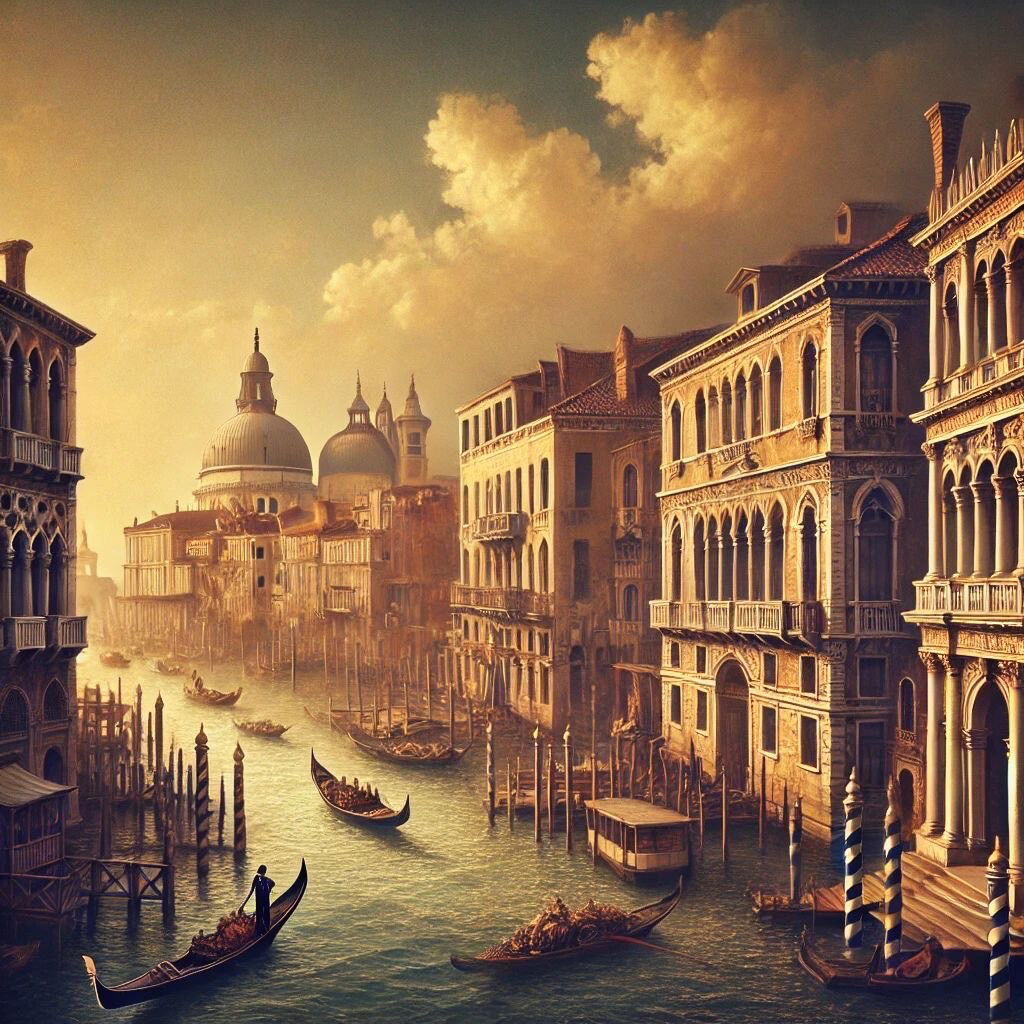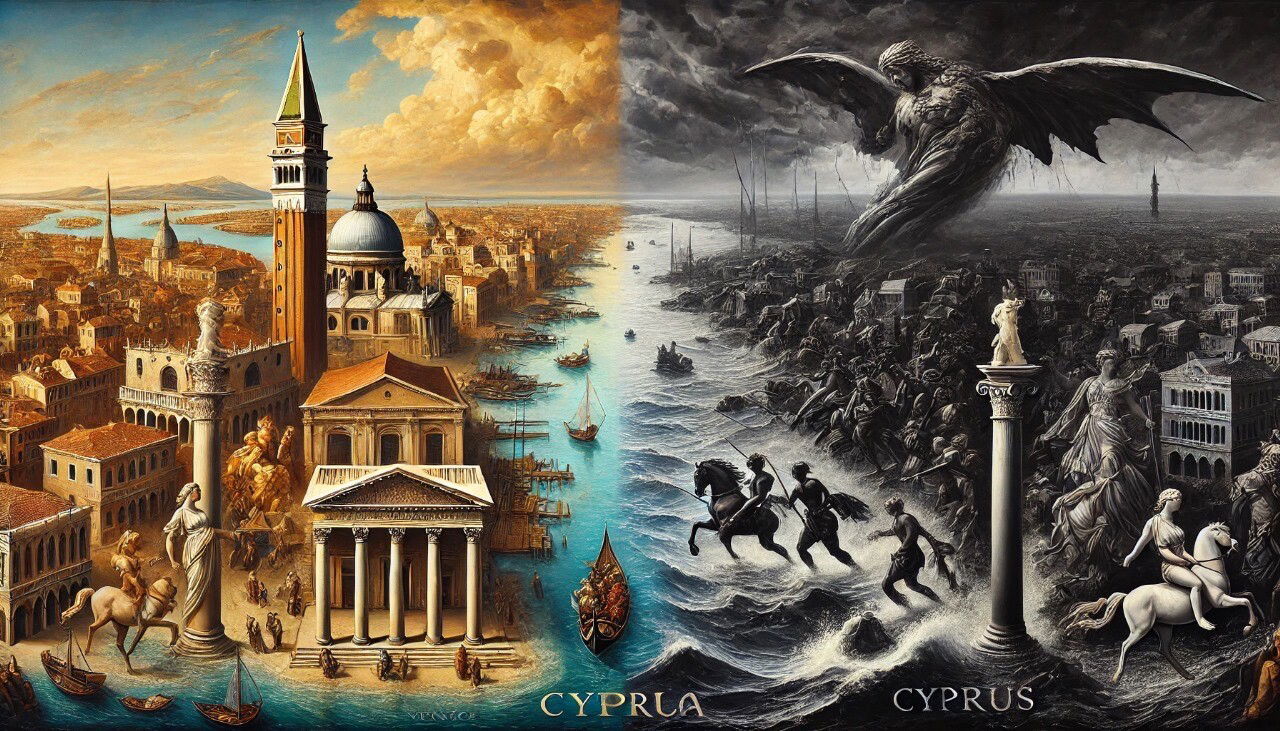SETTING PROFILES
In Othello, the settings Venice and Cyprus play a big role in shaping the characters behavior and highlighting key themes like race, gender, power, and isolation.
VENICE

Venice, at the beginning of the play, is a wealthy, sophisticated city known for its laws, trade, and order. It seems like a place where everything runs smoothly, but there’s a dark side too. Beneath all that politeness, Venice is full of prejudice and rigid social rules.
Race and Alienation:
Othello, a Black man from a foreign land, is respected as a great general, but he’s never fully accepted because of his race. People see him as an outsider. Even Brabantio, Desdemona’s father, can’t believe she would marry a man like Othello unless he used magic. His reaction shows the underlying racism in Venetian society. Basically, he’s saying, “If this kind of marriage is allowed, the whole system will fall apart.”
Gender and Power:
Women in Venice are expected to obey their fathers and husbands. When Desdemona marries Othello without her father’s permission, it’s seen as shocking and rebellious. But even after marrying him, she has little power and is expected to stay loyal no matter what.
At the same time, women like Bianca (a courtesan) are treated even worse they don’t fit into the “respectable” mold, so they’re judged harshly and looked down on.
Order vs. Chaos:
Venice is a place where there are clear rules. But as soon as the characters leave Venice and head to Cyprus, things start to fall apart.
CYPRUS

Cyprus is very different from Venice. It’s a remote, military outpost, and it’s not as refined or stable. This change in setting mirrors Othello’s emotional journey. In Venice, he seems confident and in control. But in Cyprus, he becomes more isolated, more insecure, and eventually loses control completely.
Isolation and Vulnerability:
Just like Cyprus is physically cut off from the world, Othello becomes more and more emotionally isolated. Without the structure and order of Venice, he starts to doubt everything especially Desdemona. Iago takes advantage of this and feeds Othello’s jealousy, making him believe Desdemona is cheating on him.
Gender and Weakness:
Cyprus is also where Desdemona becomes increasingly vulnerable. She has no real power here, and as Othello’s jealousy grows, she’s left helpless. Emilia (Iago’s wife) is also mistreated and ignored, even though she’s one of the few people who sees what’s really going on.
Chaos and Breakdown:
In Venice, things seemed orderly. But in Cyprus, chaos takes over. Iago’s lies spin out of control, people get drunk and fight, and Othello’s calm, rational side disappears. The handkerchief plot, the violence, and eventually Desdemona’s tragic death all happen here.
The Bigger Picture: How the Settings Reflect Key Themes
Race and Alienation:
Othello is an outsider in Venice because of his race, and that sense of alienation only gets worse in Cyprus. Iago plays on Othello’s insecurities, making him believe that because he’s different, Desdemona could never truly love him.
Gender and Power:
Whether in Venice or Cyprus, women are treated unfairly. Desdemona is judged for her choices, Bianca is mocked because she’s a courtesan, and Emilia is dismissed by Iago until he kills her. The play shows how women had little agency and were often blamed or mistreated, no matter what they did.
Order vs. Chaos:
Venice represents structure and reason, but Cyprus represents chaos and emotional breakdown. This shift from order to chaos mirrors Othello’s psychological decline. He goes from being a respected leader to a jealous, violent man consumed by rage.